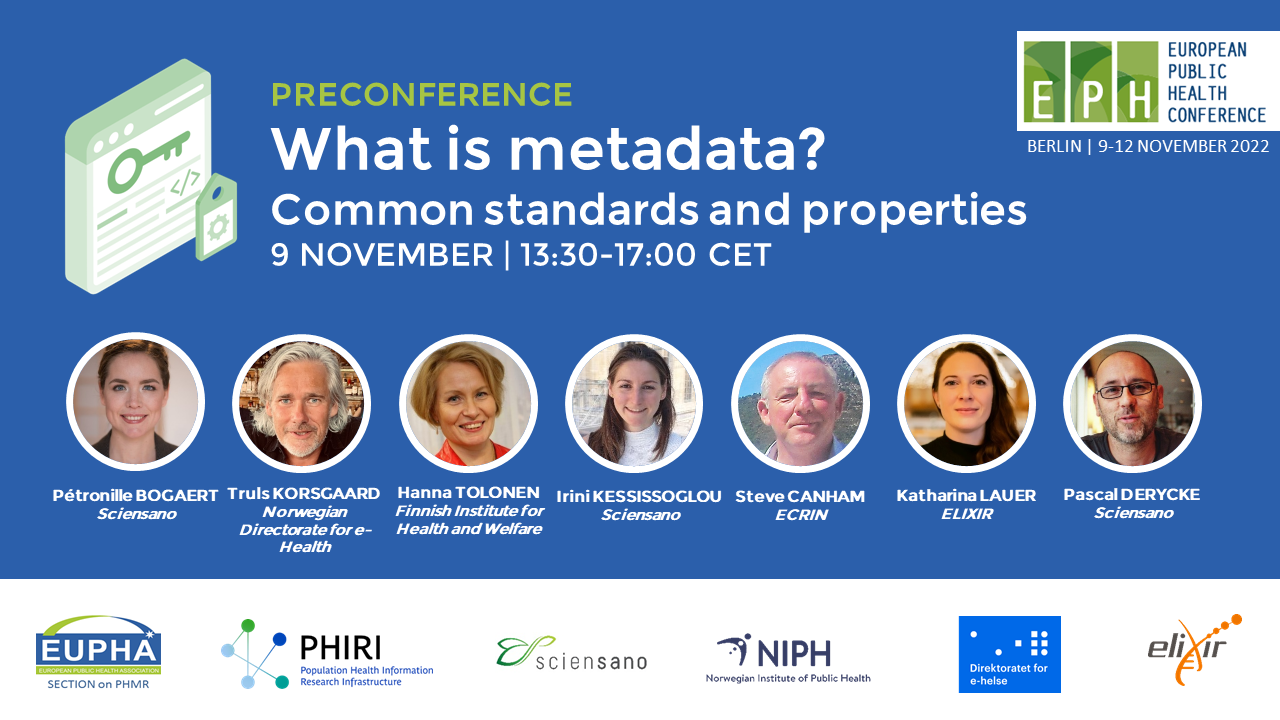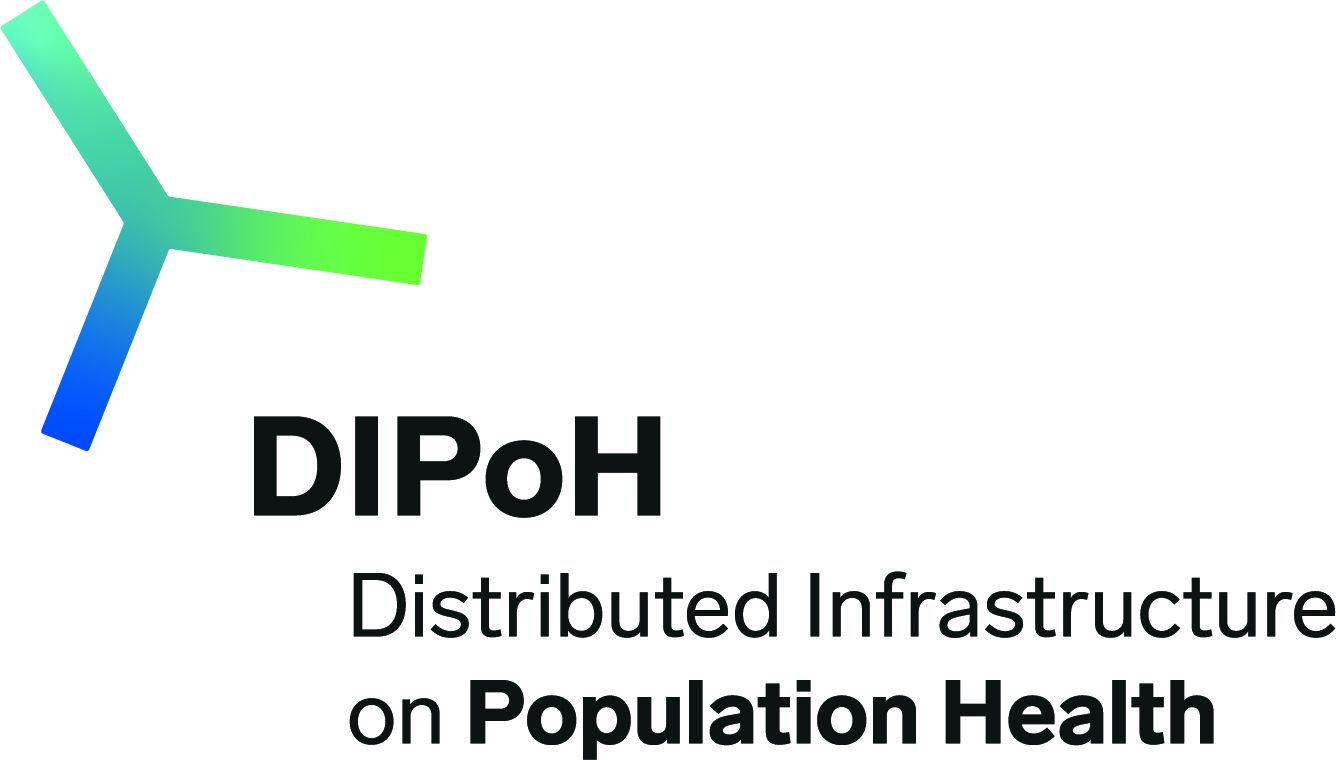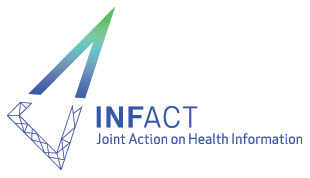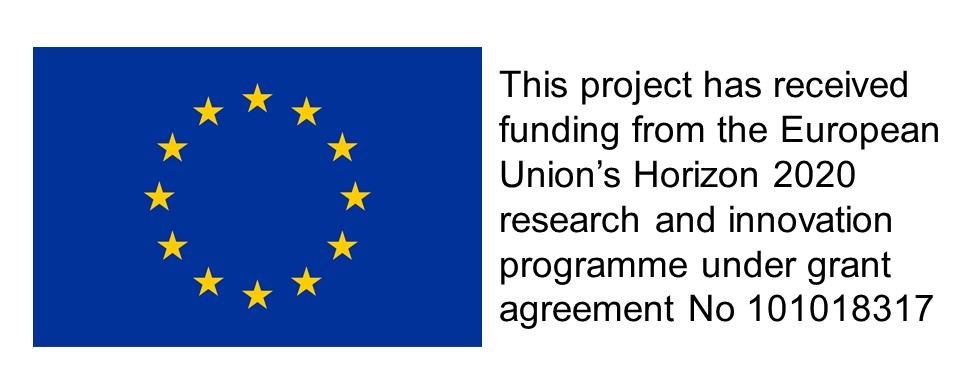
This pre-conference is organised by: EUPHA Public health monitoring and reporting section, Population Health Information Research Infrastructure (PHIRI), Sciensano, Belgium, The Norwegian Directorate of eHealth, Norwegian Institute of Public Health, and ELIXIR (Research Infrastructure for Bioinformatics)
Date and time:
Wednesday 09 November 2022, 13:30 – 17:00 CET
Background:
Routine population health monitoring is based on data collections and making these data available for secondary use is an essential step towards enhancing the data findability: making data discoverable for a wider circle of data users, including researchers and policy advisors. Metadata is a set of data that defines and describes a resource (e.g., data collection, dataset, sample...) so that it can be discovered, understood, and reused. They can be collected in metadata catalogues which describe the available data collections in a national or international repository or hub, for example Findata (national data hub) and the Health Information Portal (European population health catalogue).
Metadata plays an increasingly important role in Europe and beyond because it increases the FAIRness levels of data collections: it contributes to increased Findability, Accessibility, Interoperability and Reusability of data. The European Health Data Space is an initiative aiming to increase the FAIRness levels of health data across Europe, with secondary use of health data for research and policy making purposes at its core. To exploit metadata to their full extent, machine readability is a key aspect.
This pre-conference will cover the concepts of metadata standards and FAIR principles, the quality of metadata and interoperability between metadata catalogues. The pre-conference consists of three elements: an introduction to the concept of metadata standards and the FAIR principles, a section on the use of metadata (Eurostat, ELIXIR) in showcasing examples of EU initiatives, and an interactive session on how to create your own metadata catalogue (DCAT compliant). We will start by explaining what metadata is and provide an overview of common standards and their properties used in public health. A second presentation will point out why metadata is important in the domain of public health. Practical examples will be provided on how metadata catalogues have been created and how they can be used. The preconference will continue with examples that showcase the use of metadata repositories in other health domains, such as genomics or clinical research. These practical examples will highlight the strengths and weaknesses of the metadata standards.
Finally, the pre-conference will include a hands-on session where participants will create their own descriptive metadata record using documentation based on the DCAT-AP standards. standard. This will provide them with an in-depth experience of using a standard which is commonly used across Europe and has the potential to be one of the main standards to be used for the implementation of the European Health Data Space.
Pre-conference participants will be familiarised with the concepts and key standards and properties of metadata. The session is aimed at a broad public health audience to familiarise public health practitioners with the topic rather than data engineers. Theory will be illustrated through practical examples. Participants will have ample time to interact and share their own experiences.
Structure and agenda:
|
Time |
Topic |
Speaker |
|
13.30 – 13.40 |
Welcome and opening |
Petronille Bogaert, EU Health Information System Unit, Sciensano, Belgium |
|
Setting the scene and Inspirational cases |
||
|
13.40 -14.20 |
What is metadata? What are common standards and their properties? |
Truls Korsgaard, Norwegian Directorate for e-Health, Norway |
|
14.20 -14.40 |
Why we need metadata for public health data sources? Illustrated with the European Health Information Portal and the ambition of the European Health Data Space (EHDS2 pilot). |
Hanna Tolonen, Challenges and Solutions on Population Health and Welfare, Finnish Institute for Health and Welfare (THL), Finland |
|
14.40-15.00 |
Assessing FAIRness levels of health data within HealthyCloud |
Irini Kesisoglou, EU Health Information System Unit, Sciensano, Belgium |
|
15.00 -15.30 |
Break |
|
|
15.30-15:45 |
Metadata repository clinical trials |
Steve Canham |
|
15:45-16.00 |
Metadata use in genomics |
Katharina Lauer |
|
Practical exercise |
||
|
16.00-16.50 |
Create your own metadata documentation using DCAT standard |
Group work facilitated by: |
|
16.50-17.00 |
Wrap up and key messages |
Petronille Bogaert, EU Health Information System Unit, Sciensano, Belgium |





